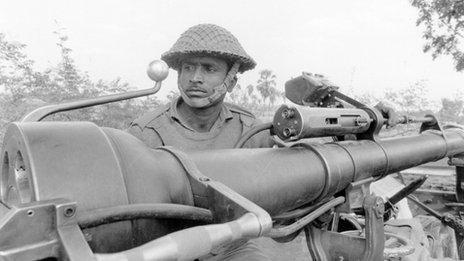Bangladesh Islamist leader Motiur Rahman Nizami sentenced to death
- Published
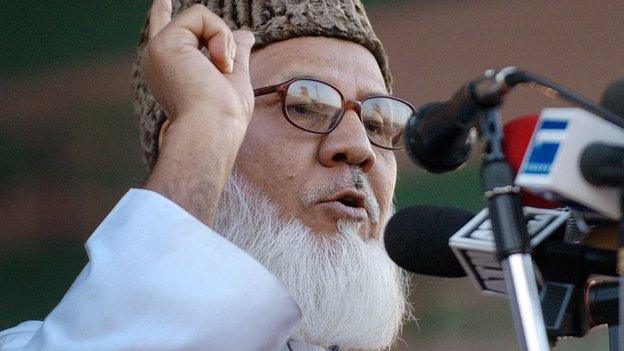
Motiur Rahman Nizami is a former minister in Bangladesh
The head of Bangladesh's largest Islamist party has been sentenced to death for war crimes committed during the independence war against Pakistan in 1971.
Motiur Rahman Nizami, 71, faced 16 charges including genocide, murder, torture and rape.
A state prosecutor said the sentence reflected the "gravity of the crimes".
The defence said that the charges were not proven beyond reasonable doubt and that it would appeal.
There are different estimates for the number of people killed in the nine-month Bangladeshi war of secession.
Government figures suggest as many as three million people died, while some say that figure is too high and unverifiable.
A war crimes tribunal in Bangladesh with a three-judge panel announced the verdict to a packed courtroom in Dhaka.
Nizami, who was head of the Jamaat-e-Islami party, was accused of acting as supreme commander of a militia, al-Badr, an auxiliary force which helped the Pakistani army identify and kill pro-independence activists in Bangladesh.
The prosecution said the group carried out systematic torture and executions during the war, including of teachers, engineers and journalists.
Nizami served as a minister in the Bangladesh Nationalist Party-led government from 2001-2006. He was also given a death sentence in January after being convicted in an arms smuggling case.
Nationwide strike
"Considering the gravity of the crimes, the tribunal punished him with the death sentence," state prosecutor Mohammad Ali told Reuters news agency.
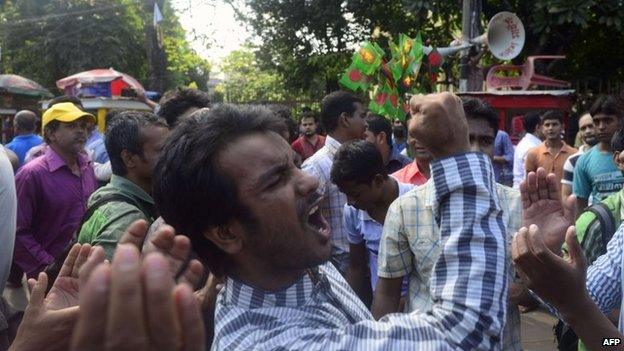
Many social activists took to the streets to celebrate the sentence
Prosecutor Tureen Afroz told the BBC: "The prosecution team is very happy with the verdict that we could prove the charges beyond reasonable doubt."
However, defence lawyers said they would appeal against the verdict.
"The tribunal went beyond its jurisdiction," defence counsel Tajul Islam told the BBC.
"The other charges just were not proven at all beyond any reasonable doubt and that is why we're very unhappy and we'll file an appeal."
The Jamaat-e-Islami party called for a three-day nationwide strike to protest the decision.

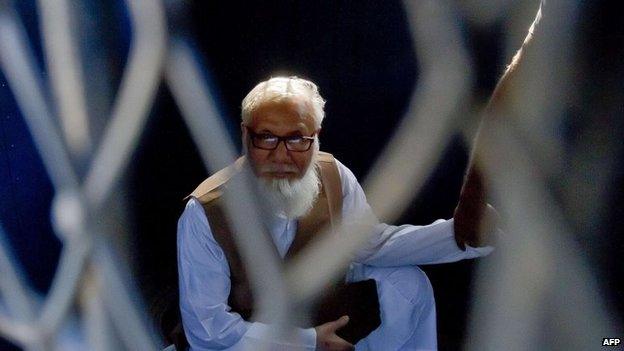
Nizami was driven to a prison after being sentenced
Analysis: Sabir Mustafa, BBC Bengali Service editor
The trial of Motiur Rahman Nizami was one of the most eagerly awaited events in Bangladesh's recent history.
Among several other crimes, Nizami was found guilty of responsibility in the targeted killing of dozens of Bengali intellectuals in the last days of the war.
The killing of the intellectuals has been one of the most emotive issues in Bangladesh for the past 43 years, and Nizami's conviction is likely to go a long way to bring a sense of justice and closure to families of the victims.
His conviction deals a severe blow to Jamaat-e-Islami's standing in the country.
Jamaat has long refused to apologise for its role during Bangladesh's war of independence in 1971, when the party collaborated closely with the Pakistan army fighting Bengali nationalists.
With the party leader found guilty of genocide and murder, it increases pressure on Jamaat to come to terms with this especially dark chapter in its history.
But Jamaat's decision to call three days of general strikes shows the party is still reluctant to acknowledge its alleged role in carrying out atrocities.
Without making a break from its 1971 legacy, Jamaat is likely to remain the most controversial political party in Bangladesh.

Controversial tribunal
Higher security measures were in place across Dhaka ahead of the sentencing.
After the sentence was announced, street protests erupted in several towns, and Jamaat supporters clashed with police.
Police used rubber bullets and tear gas to disperse the protesters.
Prime Minister Sheikh Hasina set up the war crimes tribunal in 2010 to look into abuses during the independence war.
Correspondents say Nizami is one of the most important figures to be found guilty by this controversial court.
Critics have said the government is using the tribunal to target political opponents. Human Rights Watch has previously said the court's procedures are not up to international standards.
The Awami League, which leads the current government, says it's necessary to help the country come to terms with its past.

Bangladesh independence war, 1971
Civil war erupts in Pakistan, pitting the West Pakistan army against East Pakistanis demanding autonomy and later independence
Fighting forces an estimated 10 million East Pakistani civilians to flee to India
In December, India invades East Pakistan in support of the East Pakistani people
Pakistani army surrenders at Dhaka and its army of more than 90,000 become Indian prisoners of war
East Pakistan becomes the independent country of Bangladesh on 16 December 1971
Exact number of people killed is unclear - Bangladesh says it is three million but independent researchers say it is up to 500,000 fatalities

- Published21 January 2013
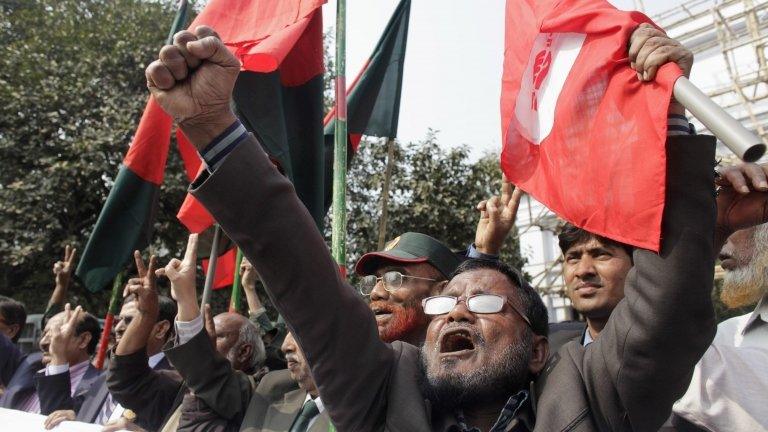
- Published12 December 2013
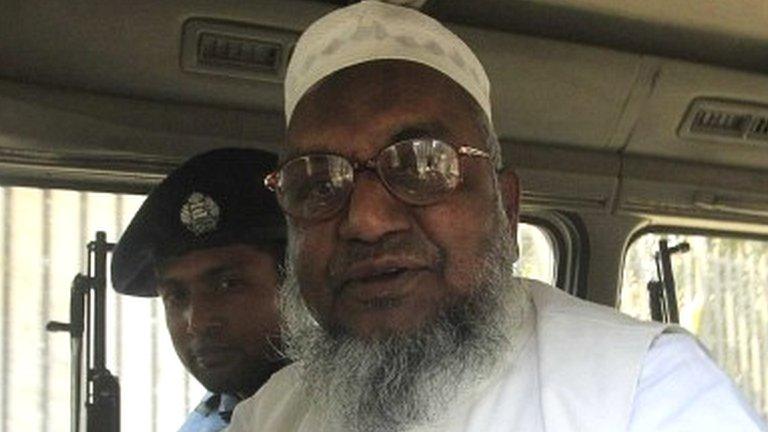
- Published13 December 2011
